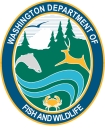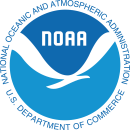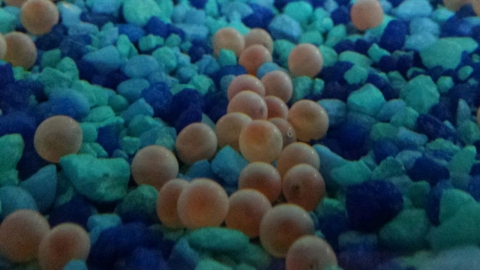Ways to Get Involved
Carson National Fish Hatchery offers many ways to be involved! Whether you want to further conservation, learn more about nature or share your love of the outdoors, you’ve come to the right place. National fish hatcheries provide many opportunities for you to help your community and fish and wildlife by doing what you love. National fish hatcheries partner with volunteers, youth groups, landowners, neighbors and residents of both urban and rural communities to make a lasting difference. There are opportunities for everyone to get involved!
Volunteers: Gain new experiences and meet new people while helping to advance fish and aquatic conservation.
Friends: Learn more about our own non-profit Friends of Northwest Hatcheries and how they are helping hatcheries.
Local Groups: Find out how communities can work with hatcheries to conserve our shared natural resources.
Youth: Explore paid and unpaid opportunities to learn and develop leadership skills. Forest Youth Success is a local youth program for students living in Skamania County, Washington.
Hatcheries provide a wonderful setting for daily to longer-term volunteer opportunities. To volunteer, contact larry_zeigenfuss@fws.gov, or call Larry at (509) 427-5905.
Volunteering
Discover for yourself what tens of thousands of volunteers have learned: volunteering for the U.S. Fish and Wildlife Service is fun and rewarding in many ways. Master new skills. Meet new friends. Enjoy a sense of accomplishment from doing your part to further wildlife conservation for the pleasure of generations to follow. There are many ways to get involved!
Daily Opportunities
We are happy to provide volunteer opportunities, including assisting hatchery staff with special events, fish production, and light maintenance activities. All volunteers compliment our hatchery programs and offer valuable support! To volunteer, contact cheri_anderson@fws.gov, or call Cheri at (509) 493-1730.
Hatchery Hosts
We also have a special volunteer offering, called the Hatchery Host program. Hosts spend 3-4 months on station providing grounds-keeping assistance, fish production, light maintenance, and greeting people at visitor contact stations. The Carson National Fish Hatchery has two RV pad for hosts. The pads provide electrical, water, sewer, and telephone hook-ups, with laundry on site. Hosts only have to volunteer 20 hours/week to the hatchery. Please contact cheri_anderson@fws.gov or call Cheri at (509) 493-1730 for further information about our program.
Education Programs
The hatchery is active in the Complex's Outreach and Education program. The Education Office offers a very popular Salmon in the Classroom program to schools in the Columbia River Gorge and beyond. Classrooms are equipped with a tank, chiller, and display materials. Students visit a hatchery to see the spawning process and learn why hatcheries are important. Eggs are delivered to the classroom and students make daily observations to see egg/fish development. Staff from our Information and Education Office visit the classrooms throughout the unit and provide lessons on salmon anatomy, watershed health and adaptations. In addition, outreach staff offer a variety of outdoor learning opportunities in the spring and summer that include: field days, archery, stream surveys, summer camps, and special events. Call the Information and Education Office at 509-493-2934 for more information.
Open the door to a potentially life-changing experience. If you land a student internship, a fellowship or a volunteer opportunity at a national wildlife refuge national wildlife refuge
A national wildlife refuge is typically a contiguous area of land and water managed by the U.S. Fish and Wildlife Service for the conservation and, where appropriate, restoration of fish, wildlife and plant resources and their habitats for the benefit of present and future generations of Americans.
Learn more about national wildlife refuge , fish hatchery or other Fish and Wildlife Service site, you’re bound to come away with new insights and excitement about conservation.







